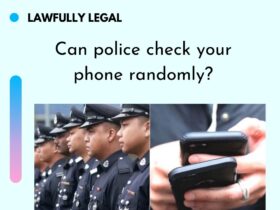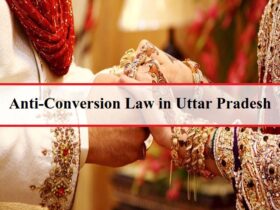What to do if you are falsely implicated in an FIR and get arrested? The biggest fear of a law-abiding citizen is that someone might falsely implicate him in a case. Our law recognises this and has many provisions with remedies for the victim. One of the basic principles of the criminal justice system is that the benefit of doubt must always be extended in favour of the accused. 1000 culprits can escape, but, one innocent should not be punished.
So, the question is, what can you do if someone falsely implicates you in a case and you get arrested by the police.
If you are falsely imprisoned by the police, You can file a writ petition in High Court for violation of fundamental rights in order to claim compensation for the damage occurred to you. Needless to say, the burden of proof will be on you to prove before the Court that the FIR was false and police have wrongfully arrested you. This type of cases usually takes 2 to 3 years.
Let me also tell you that police also has some protection for acts done in good faith as per Section 52 of IPC. If the police are able to prove that their actions were justified under the facts and circumstances of the case, then the police won’t be held liable even for the arrest which was allegedly illegal. In such a situation, the person filing false FIR would be held responsible.
In most cases, the police won’t be held liable as they were acting on the information given by the person filing the FIR. They will only be held responsible if you can prove that the police arrested you despite knowing that the FIR had false information.
Furthermore, the person filing false FIR can be prosecuted under Section 182 of the IPC.
To fight a case in the High Court against the state machinery can be a very difficult task, you need to hire a very good lawyer who is well versed and experienced in handling this type of criminal cases.
If you are a lawyer then you can obviously argue your own case in court, In case you are not a lawyer, you can still argue your case before the Courts by virtue of Section 32 of the Advocates Act, 1961, which allows people to fight their own cases.
Recent Post
After an FIR is filed, how do Police and Court proceed?










Leave a Reply
View Comments